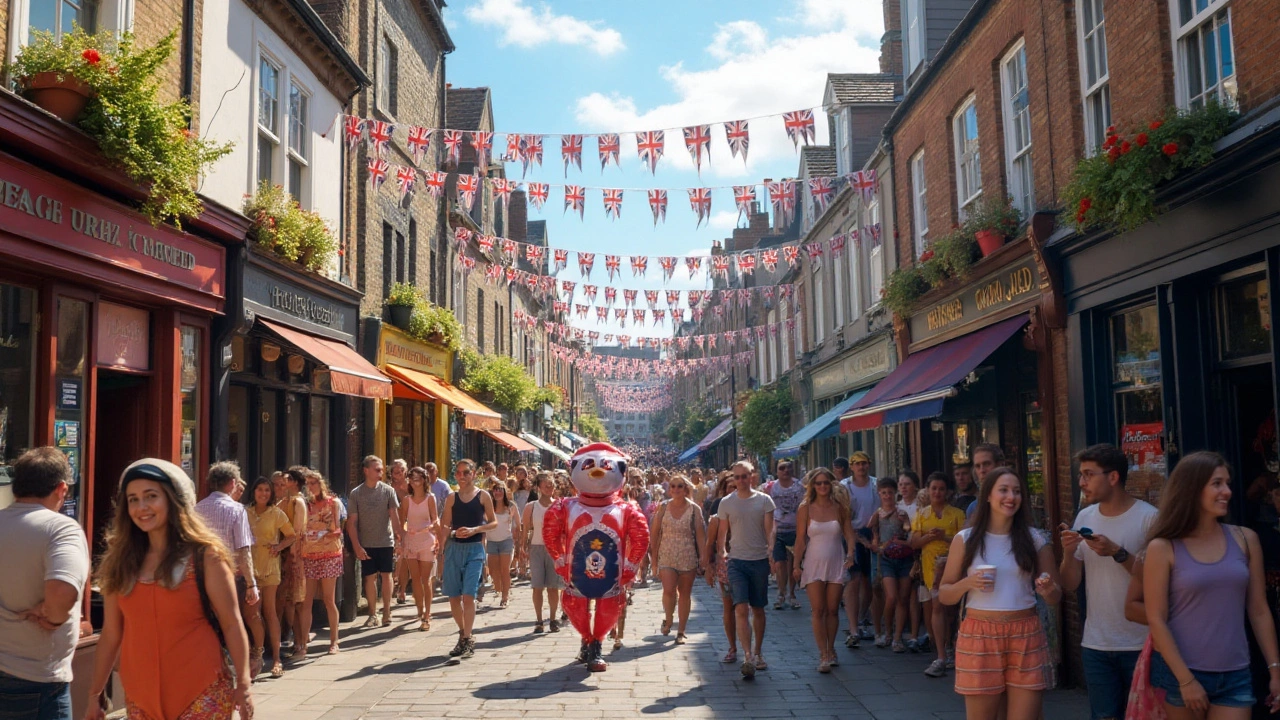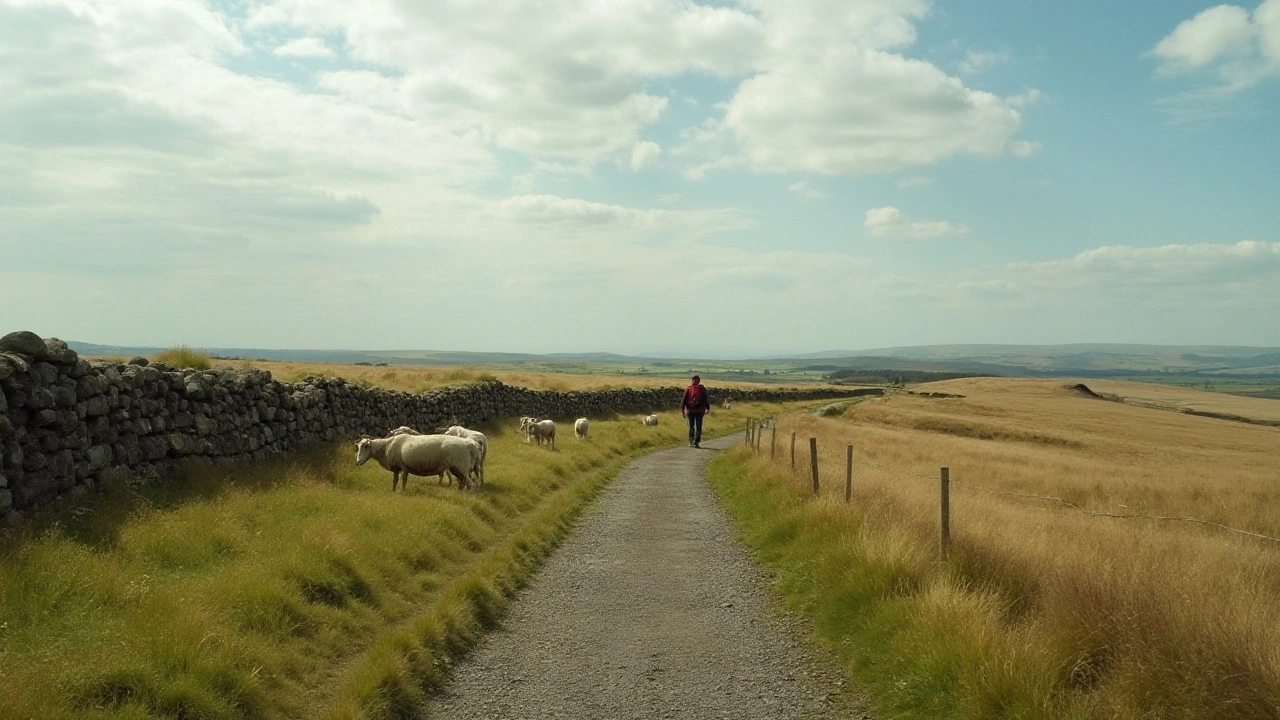Holidays within the UK certainly hold a certain charm, but they also come with their own set of challenges. It's easy to overlook the possible disadvantages while dreaming of rolling countryside trips or city explorations steeped in history. Nonetheless, being equipped with the knowledge of potential pitfalls can lead to a more rewarding experience.
Travelers frequently encounter unpredictable weather, which can disrupt plans and limit outdoor activities. Some may find that accommodations and activities can be surprisingly pricey, putting a strain on budgets. Popular tourist destinations often get crowded, especially during peak seasons, which can detract from the enjoyment of exploring. In addition, public transport can sometimes be more complicated than expected, influencing the ease of travel between attractions. And for those seeking nightlife or a variety of activities, certain rural and coastal areas might not meet these desires.
- Weather Woes and Their Impact
- High Costs and Limited Value
- Crowded Tourist Attractions
- Transportation Challenges
- Limited Entertainment Options
Weather Woes and Their Impact
The weather in the UK is notoriously unpredictable, a fact that has long been the subject of jokes and resignation among both locals and visitors. While the idea of a UK staycation might conjure images of sunny landscapes and picturesque strolls through historic towns, the reality often involves carrying an umbrella, just in case. The complexity of planning around such variable conditions can't be understated, as a day that dawns bright and clear can easily turn to rain by afternoon. This swiftly changing nature not only affects tourist attractions but also the mood and perception of one's holiday. A study by VisitBritain noted that 42% of visitors found the climate to be one of the biggest detractions from their stay. The consistent need for weather contingency plans can be taxing, especially when looking forward to a straightforward break.
The complexities of the UK's weather don't end with just one-off showers. Longer spells of rain can lead to flooding, an ever-present risk that can impact travel plans significantly. More than merely an inconvenience, it can turn planned routes into impassable quagmires and outdoor events into washouts. For instance, heavy rains in the Lake District are known to cause delays and detours, leading to frustrations and missed opportunities. The impact on small businesses that rely on tourist incomes during these periods is palpable, illustrating how deeply intertwined weather conditions are with the economic ecosystem of travel. Many visitors opt for indoor alternatives, which can quickly become overcrowded, diminishing the enjoyment further.
The strategic placement of packing lists and trip itineraries often revolve around weather forecasts that are far from guaranteed. Accommodation providers frequently emphasize the charm of their cozy fireside atmospheres, though this is small consolation when some outdoor adventure was the original draw. Public events and festivals, particularly those held in late autumn or early spring, run the risk of cancellation due to unrelenting drizzle or worse. These cancellations, inevitable with certain wet seasons, bear a mental toll; they remind tourists that they are at the whims of nature. According to a quote from the Met Office, "The UK has a maritime climate that makes predicting weather more complex, often leading to rapid updates in forecasts." Such reality forces a dynamic planning mindset, forever considering and adjusting against climatic uncertainties.
High Costs and Limited Value
Planning a vacation within the UK can sometimes feel like a dance with your budget, an intricate tango between desire and financial reality. The allure of the countryside, the history-imbued cities, or the serene coastal towns often carry a hidden price tag. Travelers expecting to save by not going abroad might find themselves surprised by the unexpectedly high costs of domestic travel, which can rival or even exceed international options in some cases.
Accommodation often represents the lion's share of a holiday's expenses. Hotels in popular tourist spots like London, Edinburgh, or Bath can be prohibitively expensive, particularly during peak tourist seasons. The hospitality sector's dynamic pricing, influenced by demand and special events, can turn a serene escape into a financial strain. An interesting survey from Visit Britain highlighted that the average daily spend per visitor in the UK is significantly higher than the European average, reflecting the nation's high cost of living.
Beyond accommodation, daily expenses accumulate quickly. Meals out, entrance fees to attractions, and even transportation costs can swiftly add up. Restaurants, especially in tourist-heavy areas, tend to capitalize on their captive market by increasing prices, sometimes without a parallel increase in quality or value. Travelers might notice a ‘tourist price’ effect, where certain restaurant menus come with elevated costs or limited dishes.
Activities and attractions also frequently come with high price tags, which can lead to unexpected budget overruns. While the UK’s historical sites, museums, and cultural events are world-class, entrance fees can be startlingly steep. A walk through history in places like the Tower of London or Stonehenge doesn't come cheap, often requiring meticulous budget planning to avoid overspending. Moreover, those looking for a variety of experiences might find limitations in certain regions, which don't always justify the costs.
Transportation challenges also contribute considerably to vacation costs within the UK. While public transport is extensive, it can be surprisingly pricey. Train fares, especially for spur-of-the-moment trips, are often higher than flights to nearby European cities. Car rentals provide flexibility but come with their own costs, such as insurance, petrol, and congestion charges in urban areas, that add layers of unexpected expenses.
"Travel within the UK has its unique appeal, but like any travel, it requires careful budgeting and a realistic assessment of costs against expectations," says a travel analyst from The Travel Foundation.
It's important to remember that enjoyment doesn't always correlate with expense. Many travelers find immense satisfaction in curating unique experiences that align with their values and budget, despite the financial implications. Embracing alternative options like staying in family-owned guesthouses, enjoying local eateries, or exploring lesser-known attractions can mitigate some of these high costs, allowing for a rich, fulfilling experience without breaking the bank.

Crowded Tourist Attractions
There's something undeniably magnetic about the UK’s renowned attractions, drawing countless visitors each year. Iconic places like the Tower of London, Stonehenge, and Edinburgh Castle often top travel itineraries, but they come with a caveat: these spots can become overwhelmingly crowded, especially during summer and school holidays. It's not uncommon to be jostled by throngs of eager tourists, each striving for the perfect photograph or the best view, which can sometimes diminish the overall experience. From crowded ticket lines to elbow-to-elbow encounters in narrow corridors, the charm of these famed sites might be overshadowed by the sheer volume of fellow sightseers.
Despite this, the allure of these historic and cultural landmarks is hard to resist. Yet, the popularity of such destinations means it's critical to plan smartly if you're set on visiting them. Early morning visits, or alternatively late afternoon trips, can help manage the multitude of visitors. Some travelers suggest purchasing tickets in advance online to bypass queuing at the entrance, a small step which can save precious time. It's also worth considering guided tours. While potentially more costly, they often provide skip-the-line benefits and enrich the experience with detailed historical anecdotes and facts about these national treasures.
The situation isn't just about physical crowding; the demand for resources around these UK staycations hotspots also peaks. Local restaurants and cafes may have long wait times, and public transport might feel the strain, with buses and trains operating at full capacity. A visit to Edinburgh during the Fringe Festival, for example, amplifies this scenario, as the city swells with both attendees and performers, leading to bustling streets and fully booked accommodations. Those keen on immersing themselves in local culture should remain adaptable, factoring in longer wait times or planning breaks in less trafficked areas to recharge.
Locations offer varied experiences that are often entirely unique to their geography and history. Yet, those longing for solitude should think outside the box. Exploring the roads less traveled, like hidden gems or less mainstream sites, could provide refreshingly peaceful visits. England's smaller, enchanting villages or Scotland's serene lochs present perfect alternatives, offering beauty and authenticity without the overwhelming numbers. Choosing off-peak travel times can also lead to a more intimate connection with these destinations, allowing you to absorb the stories told by their ancient stones without distractions.
In the words of travel writer Bill Bryson, "To my mind, the greatest reward and luxury of travel is to be able to experience everyday things as if for the first time."
"This uniqueness can be found if you step off the beaten path, evade the swarms, and look for gems hidden in plain sight."So, while crowds are often an unavoidable reality at many famous tourist spots, with thoughtful strategy and a dash of adventure, your holiday in the UK can remain not just bearable, but truly magical.
Transportation Challenges
Traveling within the UK, while brimming with promise and excitement, can present some unique transportation challenges that might not be immediately apparent to the unseasoned traveler. Many holiday-goers expect to traverse the pleasant countryside with ease, yet they often find themselves on cramped trains, delayed buses, or on roads snaking through endless traffic jams. The UK’s transportation network, although extensive, can be unpredictable, especially in peak travel times, which can dampen the holiday mood.
Public transport, despite its network reaching far and wide, tends to lag with delays and underwhelming coverage in less urbanized locales. Larger cities like London and Manchester, well-equipped with comprehensive systems, offer a stark contrast to the thinly spread services in rural areas or isolated coastal regions where buses may run sporadically, if at all. It often feels like an uphill battle to coordinate schedules, especially if spontaneous adventures are on the agenda. Moreover, in many countryside areas, a car might not be optional but a necessity, complicating trips for those used to relying solely on trains and buses.
Vehicle rental in the UK can bring its own complications. Not only does one have to contend with potentially high costs, but there's also the issue of driving on the left-hand side, which can pose a challenge for international tourists unaccustomed to this switch. This is compounded by narrow country roads where passing another car seems like a logistical ballet. Parking in tourist hotspots can be another headache, where spaces are either expensive or altogether absent. A careful traveller must exercise patience and perhaps an early bird strategy to snag that elusive parking spot.
The travel fare landscape can also be perplexing for those on staycations. Train fare variations and the sheer number of options can prove baffling. Booking in advance can save money, but the inflexibility of off-peak tickets could bind travelers to rigorous travel times. It’s an intricate dance of planning, which perhaps steals a touch of spontaneity from any trip. An alternative such as railcards can offer discounts but require upfront purchases that may not suit every tourist's needs.
| Transport Type | Pros | Cons |
|---|---|---|
| Train | Fast in major cities | Expensive, delays |
| Bus | Widely available | Inconsistent service in rural areas |
| Car | Convenient for remote areas | Parking issues, left-hand driving |
"Although transport within the UK is abundant, it is not always straightforward for visitors or even locals wishing to navigate efficiently, appearing well in theory but sometimes disappointing in execution," noted the reputable travel site Lonely Planet. This quote encapsulates the duality of a transport network that offers both reliability and unpredictability, often in equal measure.With such known hurdles in holiday planning across the UK, prospective travelers must weigh their options carefully. Understanding transportation challenges can assure a more seamless experience, urging seekers of adventure to tailor their plans around timetables and perhaps consider alternate routes that many overlook. Pre-planning in this area proves invaluable, transforming potential setbacks into mere bumps in the road that can be easily navigated.

Limited Entertainment Options
While embarking on a UK staycation promises a chance for rest and relaxation, entertainment options in certain areas can prove to be limited. This is particularly true in smaller towns or more rural settings where daily life follows a slower pace. Although this tranquility can be appealing to some, others might yearn for a more dynamic environment with diverse nightlife or cultural experiences. It's important for travelers to recognize that outside the bustling hubs of London, Manchester, or Edinburgh, entertainment options may be sparse.
For instance, the picturesque Lake District offers stunning landscapes ripe for hiking and scenic drives, yet when the evening descends, options past a cozy pub experience can dwindle. Those accustomed to the vibrant urban nightlife might find it a challenge to discover places hosting live music or theatre performances. Similar issues arise in more remote regions such as the Scottish Highlands, where cultural events may be far and few between. For visitors who thrive on such activities, planning in advance and aligning visits with local festivals or events might provide a partial solution.
Respected travel writer Sarah Baxter noted in one of her articles,
"While the UK is breathtaking in natural beauty, one must venture to larger cities to uncover the heartbeat of its lively and diverse entertainment scene."Her observations echo the sentiment that limited entertainment options should be anticipated and factored into travel plans, particularly for those who seek eclectic experiences.
For the culturally inclined, museums and galleries are mostly concentrated in urban areas. Yet, even in these cities, smaller venues can sometimes face budgetary challenges, which could result in shorter opening hours or limited exhibitions. Planning visits during weekdays might offer a better chance to see these cultural treasures without the crowds. That said, no trip to the UK is complete without embracing both its natural and cultural landscapes.
Travelers can consider making use of local tourism websites or apps to identify events, which, while not immediately apparent, could provide engaging activities that align with personal interests. Communities often organize events celebrating local traditions, ensuring that even in places one wouldn't expect, entertainment and culture remain alive. Therefore, with a bit of research and flexibility in your itinerary, even a small town can brighten up with opportunities that satiate one's thirst for entertainment.
